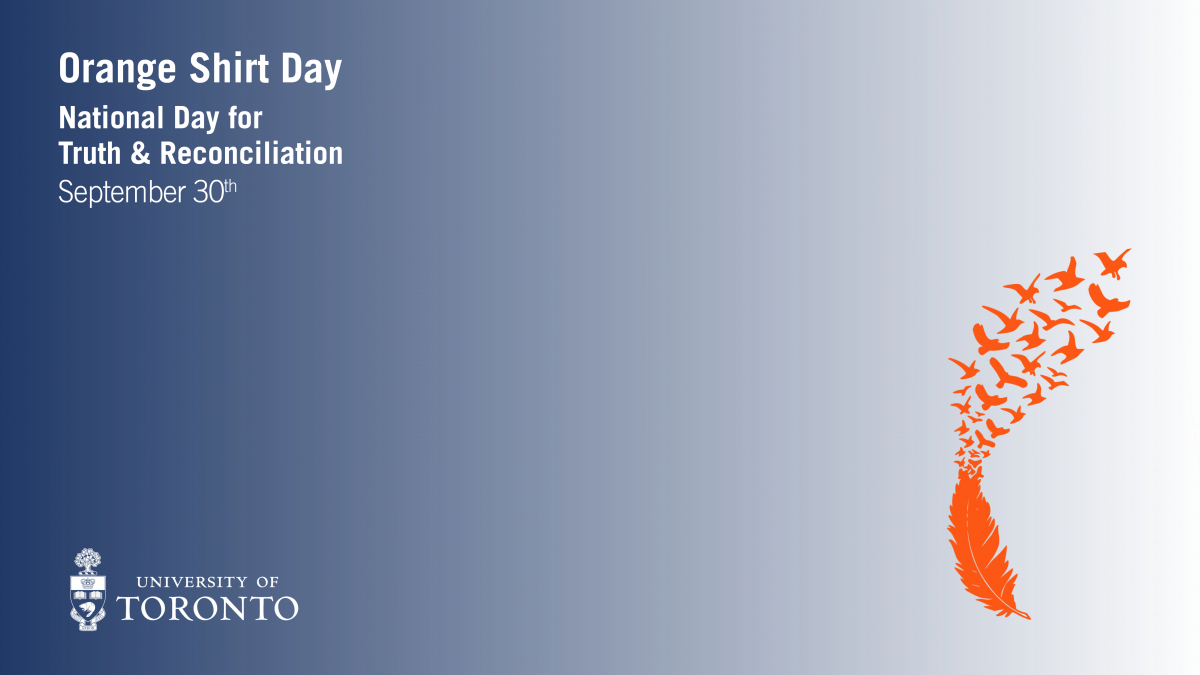Today marks the second annual National Day for Truth and Reconciliation, it honours the survivors of the Residential School System, as well as their families and communities.
Today is also Orange Shirt Day, an Indigenous-led grassroots commemorative day intended to raise awareness of the individual, family, and community inter-generational impacts of Residential Schools. The orange shirt has become a symbol of the losses and abuse endured by Indigenous children. The inspiration came from Phyllis Webstad, a Survivor. Webstad recounted her first day of residential school when she was stripped of her clothes, including the brand-new orange shirt her grandmother bought her. The orange shirt now symbolizes how the residential school system took away the indigenous identity of its students.
Building on the commitments we made in last year’s statement, this year we made strides in a tri-campus movement within UTL to change harmful language and practices that are still used in libraries and archives worldwide to describe items related to Indigenous Peoples. We have also support the preservation, revitalization, and promotion of Indigenous languages and welcomed our students back in Indigenous Languages.
Yet there is still more work to do. Public commemoration of the tragic and painful histories and ongoing impacts of Residential Schools is a vital component of the reconciliation process, so is hearing Stories from Survivors and reflecting on their truths. Given this necessity, I would like to draw your attention to an important project that UTL colleagues have undertaken. The Indian Residential School Survivors' Story Database is an extraordinary project that seeks to bring together survivors’ stories and places them in conversation with one another.
This day is meant to encourage deeper reflection, learning and public dialogue on the relationship between Indigenous and non-Indigenous peoples. I encourage you to watch or read a testimonial from one of the Survivors and reflect on their journey. Acknowledge their hardships, as well as their strength and resilience. Also, acknowledge the emotions you may be feeling and reflect on them as this day intended. The team behind the database have made suggestions on which resources to start with and have offered guiding reflection questions, which you will find in the National Day for Truth and Reconciliation Collection.
UTL understands the importance of building relationships with Indigenous communities, and we are making small but important progress to learn and understand our obligations. I am grateful to be part of an organization that is committed to advancing reconciliation and truths with Indigenous Peoples.
With best regards,
Larry P. Alford
University Chief Librarian
University of Toronto Libraries
